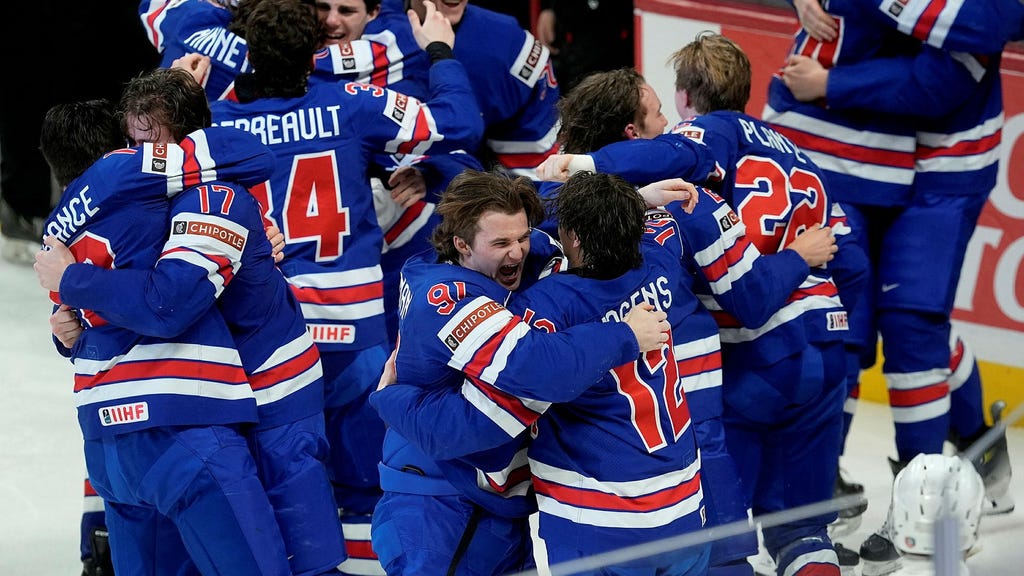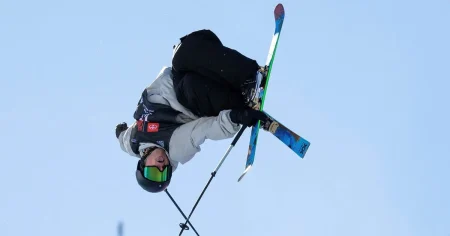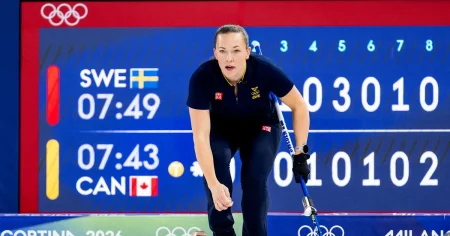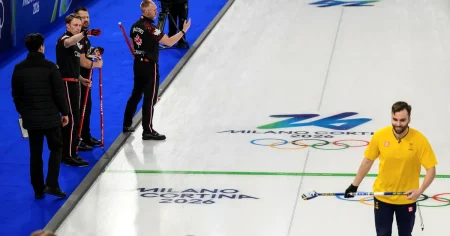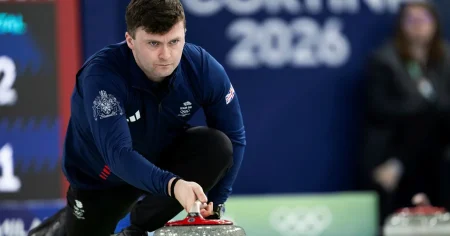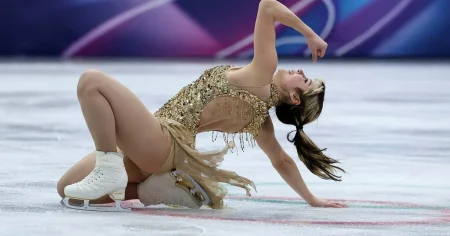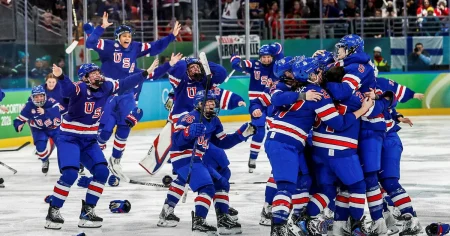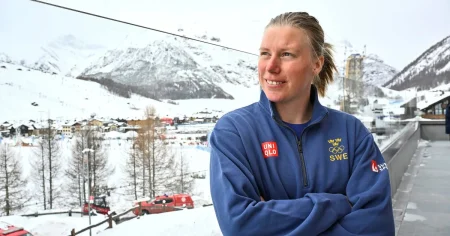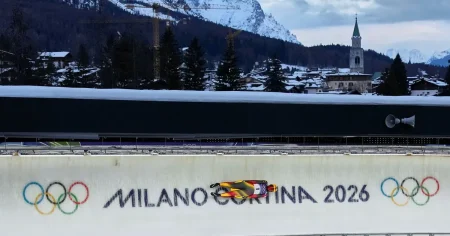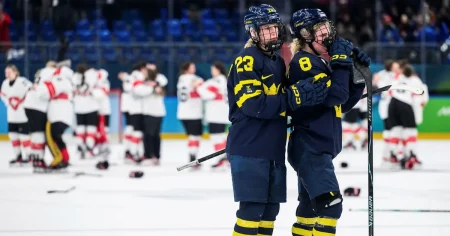The 2024 World Junior Ice Hockey Championship final, held in Ottawa, unfolded as a gripping tale of two halves, culminating in an overtime victory for the defending champions, USA. Pre-tournament predictions had largely overlooked Finland as a serious contender, with many expecting the USA to retain their title. However, the Finnish team defied expectations, steadily improving with each game and displaying a level of performance that belied their underdog status. The first period of the final saw Finland dominate play, establishing a 2-1 lead. This momentum carried into the second period, where Finland further extended their advantage to 3-1 thanks to a goal by Emil Pieniniemi. At this juncture, a Finnish victory seemed increasingly likely, significantly exceeding pre-tournament forecasts.
The narrative, however, took a dramatic turn as the second period progressed. The US team, boasting a formidable roster as anticipated, began to assert their dominance, gradually chipping away at Finland’s lead. The American resurgence culminated in two quick goals in the latter stages of the second period. First, Brandon Svoboda narrowed the deficit to 3-2 with just under two and a half minutes remaining. Then, barely two minutes later, the US tied the score at 3-3, injecting a renewed sense of urgency into the contest. The sudden shift in momentum underscored the unpredictable nature of the game and the USA’s resilience. The final minutes of the second period were a stark contrast to the earlier Finnish dominance, highlighting the Americans’ ability to capitalize on opportunities and their refusal to concede defeat.
The third period saw neither team able to break the deadlock, despite numerous chances at both ends. The tense atmosphere thickened with every passing minute, as the possibility of overtime loomed large. The final buzzer sounded with the score remaining tied at 3-3, setting the stage for a sudden-death overtime period, played under the 3-on-3 format. This rule change, eliminating the shootout for championship games, ensured that the winner would be decided by a goal rather than penalty shots, adding another layer of drama to the already captivating finale. The scoreless third period further amplified the tension, leaving both teams and fans on the edge of their seats as the game headed into overtime.
The overtime period belonged almost exclusively to the United States. They relentlessly pressured the Finnish defense, generating numerous scoring opportunities. However, standing between the USA and victory was Finnish goaltender Petteri Rimpinen. Throughout the tournament, Rimpinen had been a revelation, consistently exceeding expectations and proving to be a cornerstone of Finland’s surprising run to the final. In overtime, he continued his stellar performance, producing a series of breathtaking saves that kept Finland’s hopes alive. He single-handedly repelled wave after wave of American attacks, showcasing his remarkable athleticism and composure under immense pressure. His performance was a testament to his individual talent and the collective effort of the Finnish team.
Despite Rimpinen’s heroic efforts, the relentless American pressure eventually proved too much to withstand. Eight minutes into the overtime period, Teddy Stiga finally found a way past the Finnish netminder, securing the game-winning goal and clinching a second consecutive World Junior Championship title for the United States. Stiga’s goal brought an end to an exhilarating and emotionally charged game, marking a triumphant moment for the American team and a heartbreaking end to Finland’s unexpected journey. While the defeat was undoubtedly a painful one for Finland, their performance throughout the tournament, especially Rimpinen’s outstanding goaltending, earned them widespread respect and admiration.
The 2024 World Junior Championship final will be remembered as a classic encounter – a testament to the high-octane excitement and unpredictable nature of hockey. The game showcased the resilience and determination of both teams, with Finland’s unexpected rise and Rimpinen’s heroics adding a compelling layer to the narrative. Ultimately, however, it was the USA’s unwavering pursuit of victory, culminating in Stiga’s overtime winner, that sealed their place in the history books as back-to-back champions. The tournament served as a platform for both established stars and emerging talents, showcasing the future of the sport on a global stage. Finland, despite their loss, emerged as a team to watch in the future, while the USA solidified their position as a dominant force in international junior hockey.





